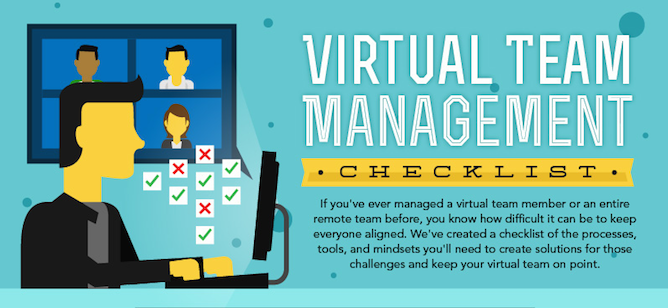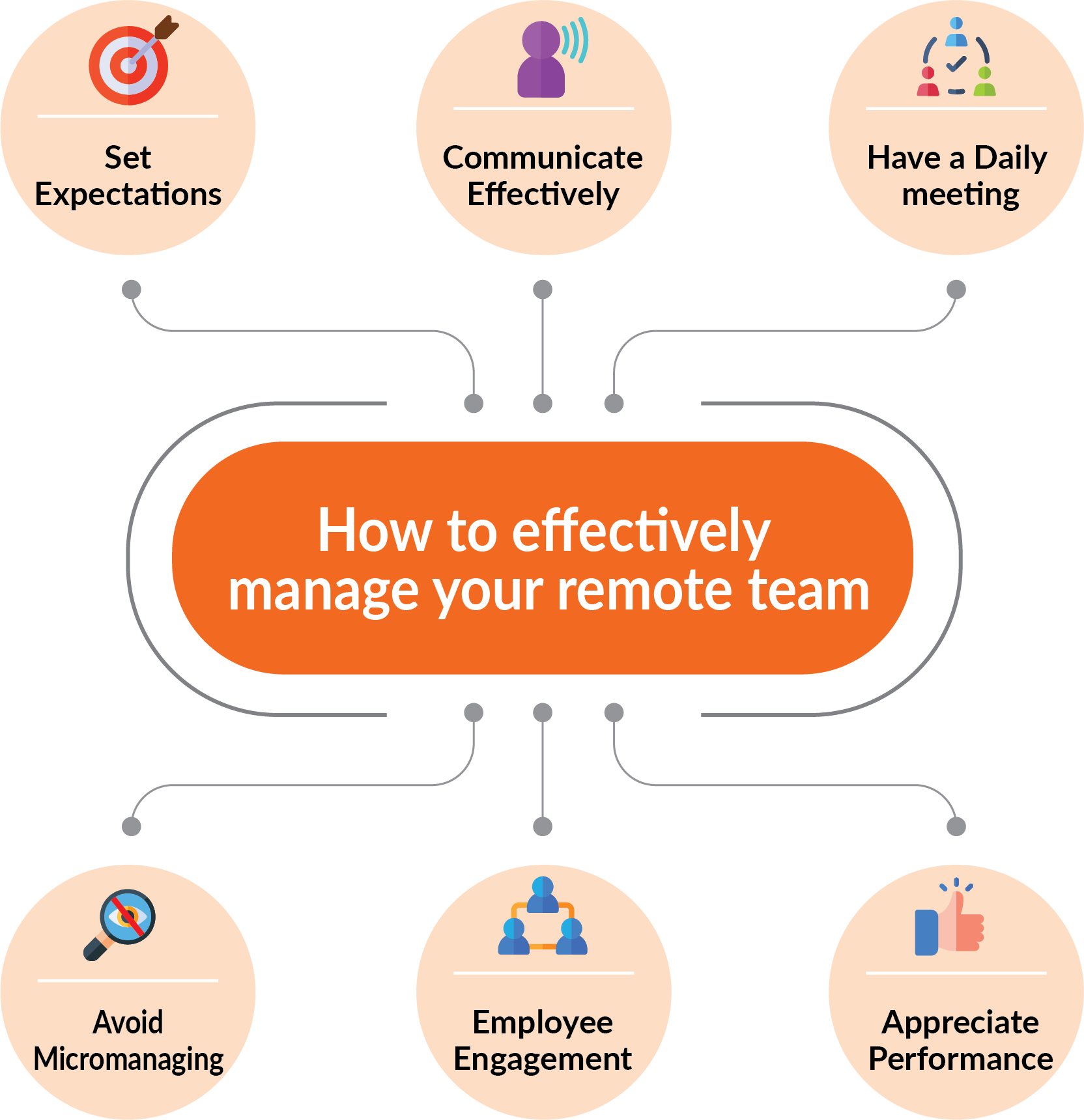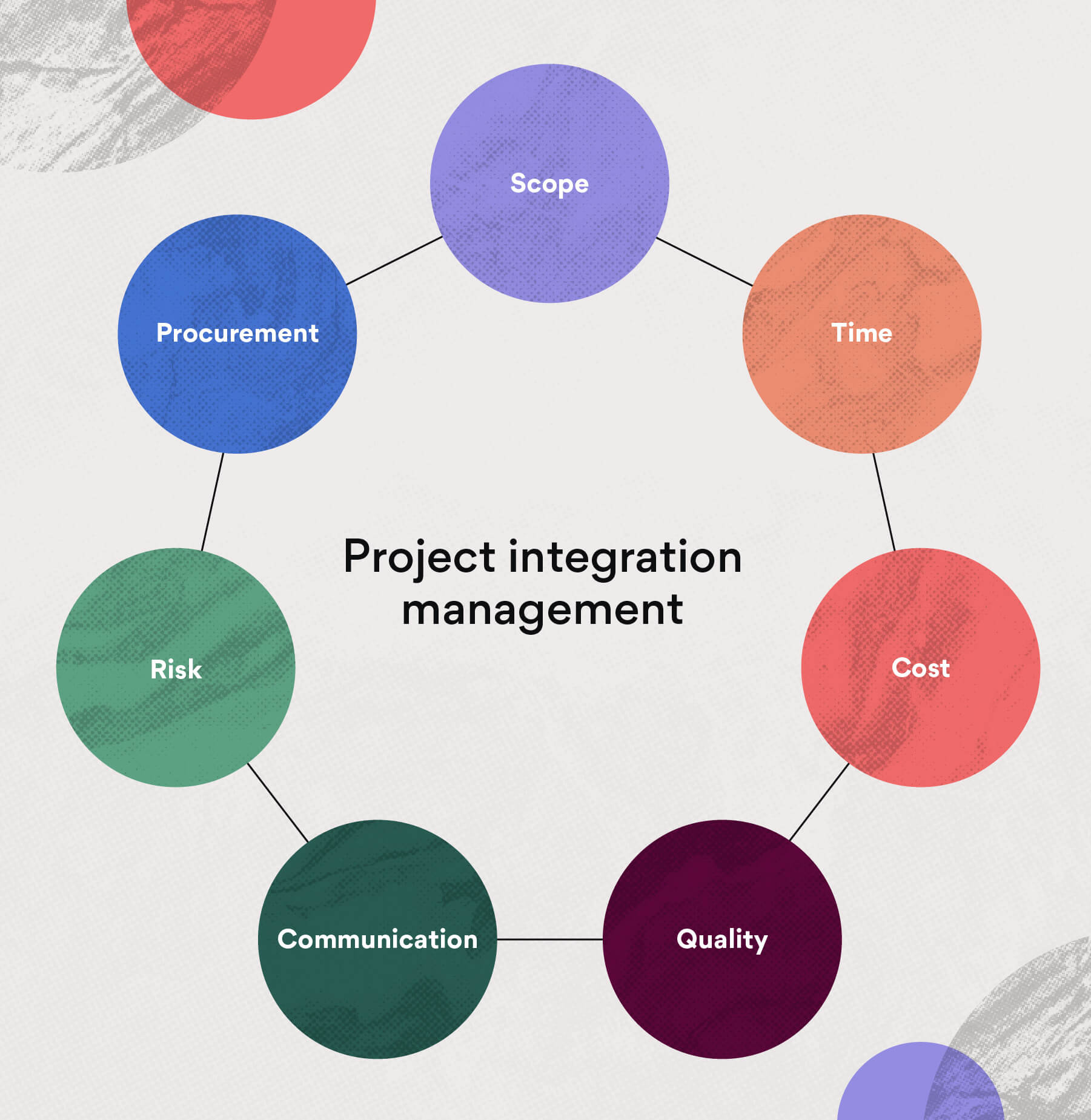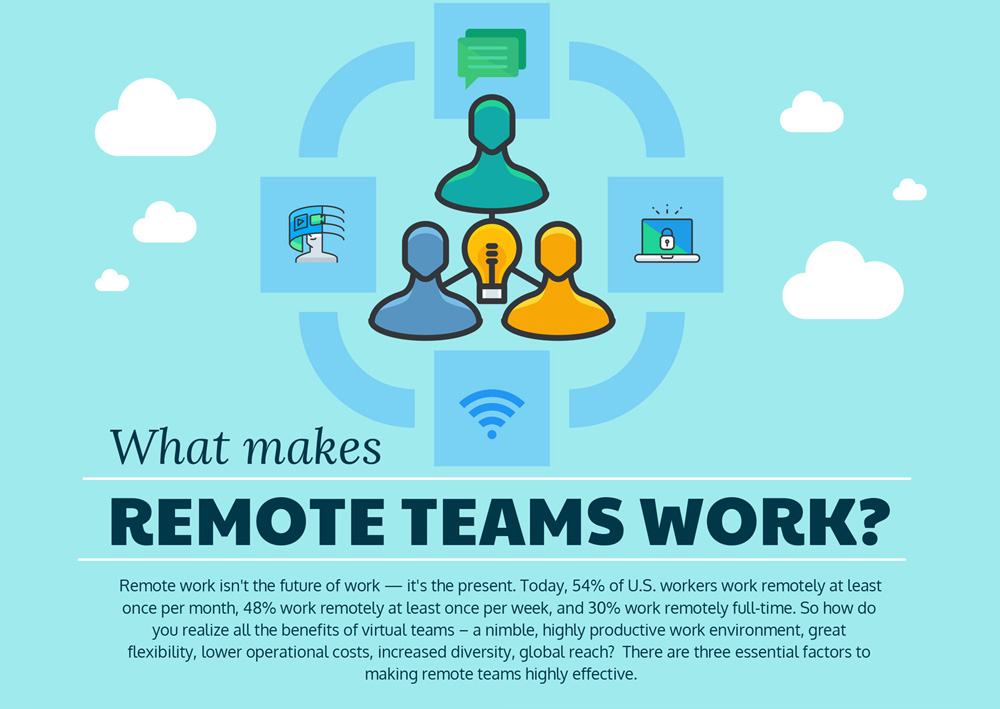How can you keep a relationship with your employees despite their geographically dispersed locations?
We often behave as though the physical distance would not affect how we feel about another person, making committed partnerships difficult. This is an essential consideration for both professional and personal encounters. Due to technological breakthroughs that have made information and expertise accessible to everyone, everywhere, there seems to be a decline in human contact.
It is the responsibility of management to oversee remote teams. As the leader of a remote team, you are responsible for fostering, leading, and assisting team members, a demanding undertaking in and of itself. This is guidance for team management leaders on managing their remote lives to make their workers happy.
When the topic of remote work is brought up, it is quite rare for people to express worries over their ability to participate in projects. The process comprises links between single proprietors and project teams in different countries or continents. Everyone anticipates adopting the remote worker mentality in some way.
Here, we present strategies employed by the best virtual administrative assistant companies to effectively manage teams.

What Exactly is a Remote Team?
The concept of a remote team encapsulates the advantages of the global economy. Unlike centralized offices, remote teams are professionals from various locations working towards the same goal. These employees rarely meet in person. They communicate and collaborate virtually instead.
The advantages of remote teams extend to larger talent pools. They have access to the best global talent, which is especially beneficial for multinational corporations. This team-building method is more adaptable, but it has its challenges.
Effective communication is critical to the success of remote teams. Members of a remote team may not understand progress or schedule meetings at their convenience when they work from different locations. Effective remote teams, on the other hand, necessitate open communication. It necessitates trust and collaboration among team members because they all report to the same company.
Furthermore, managers must spend more time communicating with remote teams and monitoring their progress. Fortunately, several software solutions help managers keep track of their team's progress.
When you manage remote employees, you are aware of the challenges that come with project management, team management, and project completion on time. The remote working culture is undeniably beneficial. The task of motivating a remote team is complex.
The Challenges of Managing Remote Teams
If you manage a team spread across multiple locations, you must know the difficulties of managing remote workers. You will have to work extra hard to foster a positive company culture because many of your team members will not be in the same physical space daily.

Fortunately, you can use a few strategies to manage remote workers successfully. Here are some of the core challenges you may encounter.
- Inadequate communication tools
- Recruiting the Best Personnel
- Everybody's time should be respected
- There are no definite duties and functions
- Creating timetables
- Performance management is hard to ascertain
- The team's group cohesiveness is lacking
- Making each member of the team feel like a team player
Solutions and Tips for Effectively Managing a Remote Team for Enhanced Productivity

Managing a remote workforce can be difficult. Workers are more likely to work at their own pace and schedule.
Managers can, however, take various measures to ensure that productivity levels remain high. They should establish clear timelines for significant initiatives, set clear goals, and check in with employees regularly to see how they are doing. While communicating your expectations and your team members' expected responses is also critical.
Here are some solutions to help you effectively manage a remote team for enhanced productivity.
While these suggestions may appear straightforward at first glance, they can significantly affect how your project managers and remote team members interact.
Use a Time Tracking Tool

Managing a remote team necessitates the use of an efficient management system.
- It can help you track team members' productivity by recording their time on job activities and comparing it to estimated time.
- You can use the data to assess delegated tasks.
- Time tracking software organizes team workload and decision-making.
- Set vacation policies and avoid understaffing. A time tracking tool can alert you of absences.
- It offers you a payroll setup that is fully customizable.
- Time tracking software such as Time Doctor can help individuals and organizations to be more productive.
Create a Strong Company Culture

While shared experiences, team-building activities, and company values help cultivate a strong company culture, remote teams require a different approach.
- Being transparent and authentic helps build company culture.
- It's essential to define the company's culture and reward its employees when posting remote job listings or onboarding new remote employees.
- Review Glassdoor ratings to see what company culture competitors are creating.
- Remote team members should contribute and give feedback.
- Make them feel important to the company. It will make them feel valued and appreciated, increasing their company loyalty.
Regular Meetings

A proper structure is essential for managing a remote team and holding regular status meetings. Depending on the team's needs, you may want to hold more frequent meetings during times of crisis and fewer meetings during high flow.
- Face-to-face or 1:1 meetings with your remote team are crucial for keeping everyone on the same page.
- Flexible remote work is a plus. Remote meetings work best when used strategically.
- A team with members in different time zones and locations can devolve into chaos without structure. Structure lets you organize work, communicate clearly, and prioritize issues. Also, it prevents multitasking.
Send out detailed agendas ahead of time to avoid this. The goal is to keep you updated on the status of your projects. Like -
- Hold a weekly or daily team meeting if necessary
- Assess each team member's performance and adjust the workload accordingly
- Track your team's progress and ensure everyone is on the same page
Streamline Communication and Collaboration among the Team

Regardless of how flexible remote work is, it is critical to maintain good team collaboration and communication. Everyone will stay on track if expectations, responsibilities, and schedules are clearly defined.
- Setting boundaries and aligning schedules promote teamwork.
- Use tech to keep the team on track. Set up IM and email to improve communication and collaboration.
- Lacking transparency affects employee morale. Seeing progress and making critical decisions will make employees feel valued.
- Video communications allow distant employees to see and hear facial emotions that are tough to discern in text messages. Using technology to engage your staff is an excellent method to boost engagement.
- A chat room also enables distant team members to interact. This might be advantageous for managers working from home and creating healthy team connections.
Encourage Transparency

Establishing a regular communication schedule encourages transparency.
- Team transparency will help reduce anxiety and give team members a sense of freedom. If regular team meetings are not possible, schedule regular one-on-one check-ins with team members.
- Individuals and teams should have measurable standards and should be able to measure compliance with these standards easily.
- You can create automated reports that provide customized insights to save time and improve transparency.
- Performance metrics can help you track the progress of your project and help your team members better manage their time.
- Transparent communication can promote team spirit, increasing productivity and morale among remote employees.
- Transparency also helps the business run smoothly. To accomplish this, ensure that your team members have access to critical information, ideas, and updates, and don't be afraid to share any concerns or problems with them.
Set Expectations

Setting expectations is critical when managing a remote team, especially for people who live far away from the office.
- Set clear deadlines, communicate clearly, and don't assume your employees can always manage their time.
- Documenting your expectations in writing is preferable. When you need to communicate with a remote team, share that document with them. Everyone knows what to expect from each other this way.
- Ensure all employees have the exact communication expectations, particularly during the first online check-in meeting.
- Know your remote and regular staff. Your squad won't leave you out or abandon you. This will keep the team on track and satisfied. For remote teams, ensure everyone knows what to do, and no one is left out.
Show Flexibility and Empathy
You must be willing to adjust your expectations to demonstrate flexibility and empathy when managing a remote team.
For instance, you should never be afraid to ask employees how they are at any time. It's a great way to get to know them more personally. While challenging in a virtual environment, it is still possible.
Here are some strategies for being more adaptable and empathic when managing a remote team:
- Demonstrate empathy. Managers who value compassion encourage their employees to be kind to their coworkers. Kindness will inspire them to do better the next time.
- Listen to your team members. Show your team member that you understand their needs by listening to them, providing them with advice and guidance, and providing them with the necessary work supplies.
- Set realistic expectations. Employees will feel more appreciated and productive if you follow these suggestions.
Celebrate Success

Success does not have to be celebrated in person when managing a remote team. Video chat software can assist you in this endeavor. It's also excellent to show your employees that you appreciate their efforts.
However, remember that not all your employees live in the same city. You can still rejoice in their victories. Here are three ways to celebrate your remote team's success.
- Identify and celebrate achievements. When managing a remote team, evaluate each member's performance regularly. Identifying issues and celebrating accomplishments can help to motivate remote workers.
- Instill a sense of belonging and appreciation. If possible, provide rewards and recognition for personal achievements. Small victories can be motivating and demonstrate to your team that they are doing a good job.
- Virtual parties are simple to organize. Use video conferencing to invite everyone to a virtual party. And don't forget to express your appreciation to your remote team. It will improve morale. So go ahead and host virtual get-togethers! It will be a success with your remote team!
Motivate and Reward Hardworking Employees

Keeping employees motivated is critical to the success of any business, and there are several ways to do so.
- Set target metrics to motivate team members toward a specific sales goal or job-related achievement, and then reward those who meet the target.
- Money bonuses, gift cards, and paid time off are possible rewards.
- Recognize the work your team members do.
- You communicate that you value their judgment by publicly acknowledging their efforts.
- Make a virtual bulletin board for your staff—post essential birthdays, anniversaries, and other events there. Remember to publicize their accomplishment so that everyone knows what they've accomplished!
Provide Resources for Project Clarity

Many businesses have transitioned to work from home and are hiring top talent worldwide. But how do you effectively manage a remote team? It is a difficult task that requires a little extra care and attention.
Here are some pointers for successful remote management. Provide resources to effectively manage a remote team to ensure that your remote team works well.
- Meet with your team regularly. One-on-one meetings are essential for monitoring employee performance, and frequent check-ins are especially beneficial if your remote employees live in a different city than you. This is since regular check-ins provide insight into what is going on in their work and allow you to make adjustments to meet their needs.
- Strategize your hybrid team. To avoid missed deadlines and unclear accountability, align your hybrid team with your strategic goals. Ultimately, this will result in better customer service and communication.
Team members should understand precisely what is expected and what they should not anticipate.
- A defined set of roles will improve the effectiveness and efficiency of teamwork
- Communicate any policy and procedure changes that affect your team
- Ensure that your team members understand the changes and remain on the same page by following up with them
Organizing enjoyable activities is another great way to reduce stress. Arranging team-building activities while working on a remote team is an excellent way to foster camaraderie.
Teambuilding's chief executive officer, Michael Alexis, organizes virtual events for remote teams. During work hours, he suggests organizing entertaining team activities that everyone can enjoy. Ultimately, you can improve the work quality and morale of your employees.
Track the Company's Progress

Keeping track of your progress when managing a remote team is critical. Your remote team members may feel unsupported and frustrated if they do not receive regular feedback. If you do not acknowledge and address their concerns, they may conclude that you do not care and do not want to hear about them. Monitoring your team's progress is critical to ensure it is progressing successfully.
Here are some recommendations for remote workers.
Keep track of time. Some jobs necessitate time tracking, but if your employees work from home, you won't always be able to ask them questions in person. Ensure that your company's procedures are well documented. You can monitor their time and progress using the same.
The software can assign tasks and track productivity. This software will also track time, allowing you to know when you can expect them to complete projects on time.
SMART goals for Remote Team Management
Developing and managing a remote team is different from a traditional office—other goals are required for remote management.
You must set SMART team goals as a manager. They're specific, measurable, achievable, relevant, and time-bound. Analyze all influencing factors to set a goal. Having clear goals for your team will help them bond.
SMART goals help you focus on the big picture. SMART goals can be met in many ways.
- Be as specific as possible without overextending the team's resources.
- To avoid setting unreachable goals, ask if the team can reach them.
- Consider whether the goal is essential, the time is right, and the market supports it.
- Web traffic, sales, reviews, and time saved are measurable.
- Remember that progress depends on your route and goals.
Bottomline
The future of work is increasingly becoming remote, and more organizations are embracing the concept. As the demands of today's workforce increase, remote management requires leaders to adjust to the new normal.
Consider video conferencing with your team, engaging in non-work-related chat, and developing unique check-ins. Working remotely is complex, and it will influence the quality of your job.
Develop a culture that supports honesty and productivity. Create a feeling of community by offering team-building events. Keep the above guidelines and tips in mind for a smooth transition to remote work. Managing remote teams can be a joyful and productive experience with the correct technology and employee engagement tools.















